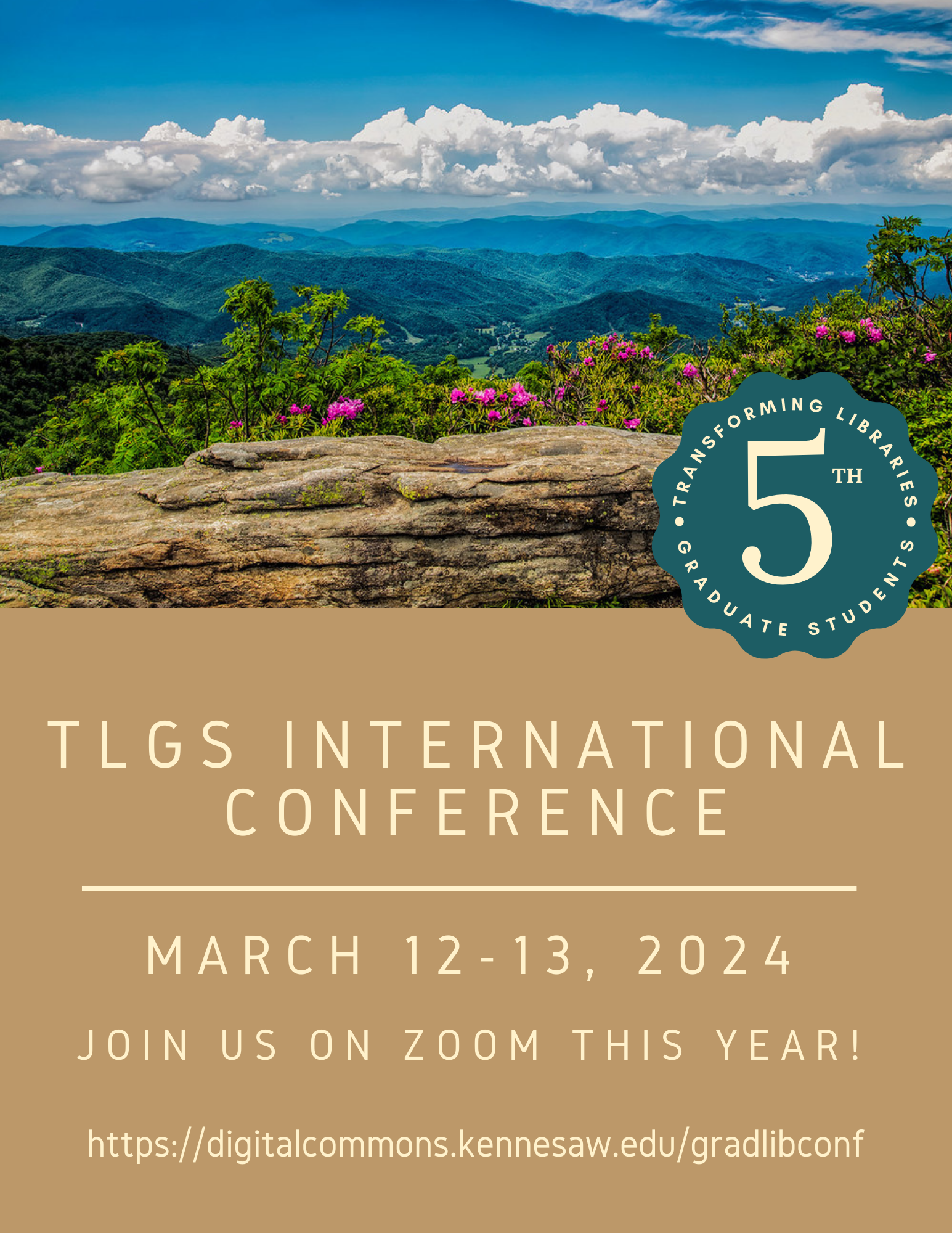Start Date
3-13-2024 2:00 PM
End Date
3-13-2024 3:00 PM
Keywords
Graduate Teaching Assistants, Library Instruction, Instructional Support, Community Partnerships
Description of Proposal
Library instruction programs can provide excellent support for faculty courses and do a great job of supporting graduate students with their research and publishing process, but for many graduate students, researching is only part of their role - and likely the role they have the most support for. Large research intensive universities rely heavily on graduate teaching assistants to support or teach high-enrollment or introductory level courses to undergraduate students, but effective teaching requires training, practice, and a network of support. In addition to uneven access to preparation for their teaching roles, graduate students are often new to the university, and some are new to the country. Given these challenges, it is unsurprising that many graduate teaching assistants are unaware of the instructional support available to them from libraries and elsewhere on campus.
To address this need, the NC State University Libraries partnered with our digital education and learning technologies unit, the Graduate School, and other support units on campus. We hosted an open house event and a series of workshops to equip TAs with online resources, instructional technology tools, library instructional supports, and insights into student research challenges. This project has expanded Libraries’ support of graduate students far beyond their research: enhancing their pedagogy and helping to build a more cohesive network of support and a sense of community for this under-resourced and high-stress population. This pilot event and workshop series has been an incredible opportunity to increase the audience and awareness of library instructional services with students and campus partners. While the impact has yet to be measured, the potential is great.
This presentation will detail the process of creation for the Graduate Student event series, including planning for the kickoff event, budgetary and staffing needs as well as the process for planning for the year long training offered by the Toolkit. This presentation will also address the successes and challenges of this model of graduate student engagement, offer best practices and recommendations for creating an event at your college or university and how the libraries and their partners consciously tried to address gaps in the levels of student engagement and perceived needs. News and updates on future iterations of the GTA Toolkit will also be shared.
Gateway To The University Community: Building an In-Person Toolkit for Graduate Teaching Assistants
Library instruction programs can provide excellent support for faculty courses and do a great job of supporting graduate students with their research and publishing process, but for many graduate students, researching is only part of their role - and likely the role they have the most support for. Large research intensive universities rely heavily on graduate teaching assistants to support or teach high-enrollment or introductory level courses to undergraduate students, but effective teaching requires training, practice, and a network of support. In addition to uneven access to preparation for their teaching roles, graduate students are often new to the university, and some are new to the country. Given these challenges, it is unsurprising that many graduate teaching assistants are unaware of the instructional support available to them from libraries and elsewhere on campus.
To address this need, the NC State University Libraries partnered with our digital education and learning technologies unit, the Graduate School, and other support units on campus. We hosted an open house event and a series of workshops to equip TAs with online resources, instructional technology tools, library instructional supports, and insights into student research challenges. This project has expanded Libraries’ support of graduate students far beyond their research: enhancing their pedagogy and helping to build a more cohesive network of support and a sense of community for this under-resourced and high-stress population. This pilot event and workshop series has been an incredible opportunity to increase the audience and awareness of library instructional services with students and campus partners. While the impact has yet to be measured, the potential is great.
This presentation will detail the process of creation for the Graduate Student event series, including planning for the kickoff event, budgetary and staffing needs as well as the process for planning for the year long training offered by the Toolkit. This presentation will also address the successes and challenges of this model of graduate student engagement, offer best practices and recommendations for creating an event at your college or university and how the libraries and their partners consciously tried to address gaps in the levels of student engagement and perceived needs. News and updates on future iterations of the GTA Toolkit will also be shared.




What takeaways will attendees learn from your session?
Insight into graduate teaching assistant student needs and opportunities for libraries to meet them with existing materials, resources, and services
Best practices and recommendations for creating a workshop series and open house event with collaborative partners